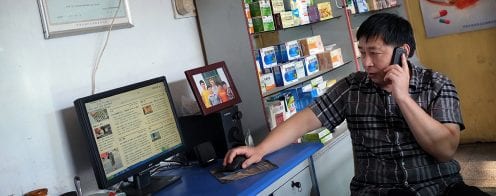London Book Fair 2017
By ucyllsp, on 31 March 2017
The London Book Fair is one of the highlights of the year for many publishers from all over the world, and is one of two key annual publisher trade fairs, along with the Frankfurt Book Fair held in October every year. This year, there were 1,577 exhibitors from 57 countries, showing their books and services and meeting with their business partners. For many publishers at the Fair, selling rights to publishers in other countries is the main purpose. UCL  Press had a stand this year on the IPG (Independent Publishers’ Guild) collective stand, and all UCL Press staff spent two or three days at the Fair, having meetings and attending seminars.
Press had a stand this year on the IPG (Independent Publishers’ Guild) collective stand, and all UCL Press staff spent two or three days at the Fair, having meetings and attending seminars.
Altogether we had over 40 meetings over the three days, Lara took part in two panel sessions in The Faculty area (one on the Academic Book of the Future project, and one with Ingenta and Wiley on how to reach readers in a world of overwhelming content), and Press staff attended several seminars relevant to their roles. Our meetings were with existing partners and suppliers, freelance editors and designers, our counterparts at other university presses, as well as potential new suppliers and partners. We also had chance meetings with many others who saw our stand and came to talk to us – booksellers, sales representatives, editors etc. Even before the Fair, a number of meetings had already taken place with people who were in town for the Fa ir – Jaimee (UCL Press Managing Editor) met up with the Managing Editors and Production Managers of other university presses, a regular twice-yearly meet up for sharing knowledge, and Lara met up with the Association of American University Presses Director who are helping the Press with a number of interesting projects.
ir – Jaimee (UCL Press Managing Editor) met up with the Managing Editors and Production Managers of other university presses, a regular twice-yearly meet up for sharing knowledge, and Lara met up with the Association of American University Presses Director who are helping the Press with a number of interesting projects.
At such a critical point in UCL Press’s development, when we are in the process of appointing a North American distributor, developing a new website, expanding to 50 books a year, planning a major conference for university presses in 2018 (University Press Redux 2018), participating in a European OA infrastructure project (OPERAS), developing publishing services for other institutions and reviewing journal publishing models, the Fair was the perfect opportunity to advance all these projects with key people and potential new partners in one intensive block. It also enhances visibility for the Press via the stand, appearances on discussion panels, and articles and interviews by staff links.
We were also very proud to see the UCL Publishing Studies MA students launching the magazine element of their new student journal, Interscript, which is hosted on UCL Press’s OA student journal platform. With plenty of social media promotion, publicity at the Fair and a launch at the Association of Publishing Educators’ stand, it has got off to a very promising start. It’s inspiring to see the publishers of the future in action.
Altogether, the Fair provides a very exciting and collegial environment. As ever after the Fair, I have come away feeling that I have learnt a great deal, forged new relationships and been inspired by the sheer creativity and commitment of my fellow publishers.
Related Articles
LBF Ahead: University Presses Rally for Trade Shows
Reaching Readers and keeping their engagement – not currently available online
Open Access Monographs: Current UK University Press Landscape by Lara Speicher
 Close
Close



